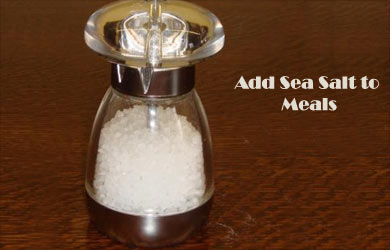What is Fatigue?
Fatigue is the inability to maintain sustained muscle activity or the lack of energy to complete a task. Fatigue results from conditions such as multiple sclerosis, Parkinson’s disease, anemia, cancer, renal breakdown, heart irregularities, neuromuscular conditions, among others. When fatigue persists for more than six months without a clear cause, the condition is termed chronic fatigue syndrome or CFS.
What is Chronic Fatigue Syndrome?
Chronic fatigue syndrome or myalgic encephalomyelitis is a condition where the individual experiences overwhelming fatigue. This hampers the productivity of the individual, who fails to perform and complete the tasks for the day. The exact cause for this condition is unknown. The syndrome may last a month, a couple of months, or even a year. Individuals experience memory loss, insomnia, lack of concentration, and muscle pain, in addition to the extreme fatigue. Bed rest does not improve the condition.
There are five different types of CFSs:
- Flu-like fatigue
- Post-exertional fatigue
- Energy fatigue
- Brain fog fatigue
- Wired fatigue
Types of Fatigue
Fatigue can be of two main types:
Central fatigue: The rate of muscle activation controlled by the central nervous system is impaired.
Peripheral fatigue: The rate of muscle activation controlled by other peripheral mechanisms (irregularity in calcium release, irregularity in oxidative phosphorylation or glycolysis) is impaired.
Causes of Fatigue
Some of the causes of fatigue are as follows:
- Abnormal functioning of the immune system
- Stress that activates the HPA axis (hypothalamus, pituitary, adrenal glands)
- Low blood pressure that reaches abnormal levels
- Lack of nutrients
- Infectious diseases, such as HIV, hepatitis, influenza
- Depression, anxiety
- Metabolic conditions, such as diabetes, anemia
- Lack of sleep, irregular work shifts, pregnancy, sleep apnea
- Alcohol or drug abuse

- Iron, folic acid, vitamin D, or vitamin B12 deficiencies
- Medications such as anti-histamines, anti-depressants, sedatives
- Diseases such as multiple sclerosis, cancer, stroke, Parkinson’s disease
- Heart conditions, such as arrhythmia, heart attack
Natural Remedies for Fatigue
Herbal Remedies for Fatigue
Herbs are a natural way of relieving stress. However, herbs may interact with other herbs or medications to generate side effects. Hence, herbs should be consumed only with the recommendation of a physician.
Some of the herbs that are useful for dealing with fatigue are:
Echinacea: This is known to improve the immune system when ingested twice a day at a concentration of 200 mg. Echinacea cannot be administered to individuals suffering from autoimmune conditions such as rheumatoid arthritis.
Ginseng: Ginseng can enhance the immune system at a concentration of 300 mg when taken twice a day. However, ginseng reacts with the drugs used for treating individuals with a heart condition, diabetes, and hormone-related cancers (breast, prostate, ovary). Ginseng also increases bleeding in individuals who use blood thinners, especially for heart conditions.
Herbal oils: Rosemary, peppermint, or jasmine oils that are used in aromatherapy relieve the stress in individuals. They can be added to a hot bath or a drop of oil on cotton can be inhaled to relieve stress.
Herbal tea: 1 tsp of dried herbs mixed in a cup of hot water and steeped for 5 to 10 minutes (dried leaves or flowers) or 10 to 20 minutes (dried roots), can be consumed 2 to 4 times a day.

Natural Remedies for Chronic Fatigue
Some of the steps to overcome chronic fatigue with natural remedies include an appropriate diet that is healthy, the use of herbs, meditation, muscle relaxation, yoga, and counseling.
Regular exercise: It has been observed that individuals who exercise regularly show fewer symptoms of chronic fatigue, Aerobics, tai-chi, yoga are good forms of regular exercise.
Energy conservation: The physician may recommend a moderate-paced lifestyle to avoid the sudden onset of extreme fatigue. In addition, the physician may recommend meeting with a physiotherapist to design exercises suitable for the condition.
Stress removal: In order to deal with stress and anxiety, techniques such as deep breathing, meditation, and yoga are recommended.

Home Remedies for Adrenal Fatigue Syndrome
Adrenal fatigue syndrome, as a condition, is controversial in the medical world. They show the same symptoms as CFS. As a result, the home remedies to cure adrenal fatigue syndrome are also similar.
- Ensure that the individual sleeps well and gets sufficient rest
- Maintain a healthy, balanced diet by avoiding junk food
- Perform regular exercise to maintain physical well-being, such as aerobics, yoga, and tai-chi among others.
- Take multivitamins containing pantothenic acid and vitamin B6
- Have magnesium, vitamin E, vitamin C, and calcium supplements
- Ensure a positive, happy, stress-free lifestyle
- Eat meals at regular times of the day
- Sea salt can be added to meals

Home Remedies for Eye Fatigue
Eye strain occurs due to poor light, glare, or flashing images. Following are some of the home remedies for eye fatigue:
- Keep the light source directly above the book or page, while reading. Maintain bright light while doing work at a close range.
- Maintain dim lighting in the room while watching television to avoid the glare of the television image along with the glare of the surrounding room.
- Keep the computer monitor positioned in front of the eyes at a distance of 20 to 40 inches from the face. Remove surrounding glare by keeping the room dimly lit. Shades can be drawn to prevent the glare from outside light. Adjust the brightness and contrast on the screen to be able to read better without straining the eyes. Clean the monitor screen since dust can create glare on the eyes. The keyboard should be placed in front as compared to below, above, or at an angle. This prevents strain on the eyes and wrists.
Tips to Overcome Fatigue
Keep the legs at an elevated position when lying down: This improves the blood circulation to the head and recharges the body.
Drink lot of water: One must drink at least 8 glasses of water a day. It is not sufficient to wait till you are thirsty to drink water.
Supplements: Coenzyme Q10, Gingko, and the amino acid carnitine are known to improve energy levels. These supplements may be taken with food.
Food: Eat spinach and high fibre foods, such as whole grain bread, oats, quinoa, and bulgur. Avoid food that is rich in refined carbohydrates, such as flour and white sugar. Avoid fatty foods.
Sleep well: Sleep early when exhausted. Take short naps during the day to avoid feeling groggy.
Avoid or limit the intake of caffeine and alcohol










